Become a specialist endodontist
What is endodontics?
Endodontics is the branch of dentistry concerned with the morphology and pathology of the dentine-pulp complex and the periradicular tissues. The study and practice of endodontics encompass the basic clinical sciences including the biology of the normal pulp, and the aetiology, diagnosis, prevention, and treatment of diseases and injuries to the pulp and associated periradicular tissues.
Endodontists are reflective, potential leaders and educators in the field. They have obtained a a postgraduate University education demonstrating advanced theoretical knowledge, understanding and clinical and research skills related to endodontics, and are essential to improve and maintain a high level of oral health care within the community.
DClinDent in Endodontics
| Duration | Three years full-time (47 weeks per year). |
|---|---|
| Campus | Dunedin (for all academic, clinical, and research education). |
| Aims |
|
| Proficiencies | On successful completion of the DClinDent in Endodontics a graduate will:
|
After course completion
On completion of the course, you'll be able to apply to register as an endodontist in New Zealand and Australia and have completed a three-year prescribed Postgraduate degree in Endodontics as evidence of your experience and education to support specialist registration in another country.
Royal Australasian College of Dental Surgeons
Following the successful completion and awarding of a DClinDent Degree a Graduate may apply to the Royal Australasian college of Dental Surgeons (RACDS) and be awarded with a Membership to the College in Endodontics (MRACDS(Endo)
Experiences from students
Humza Ahmed
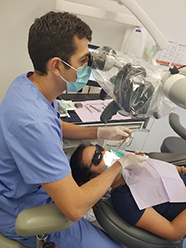 “Undertaking a DClinDent in endodontics has allowed me to have a much more in-depth understanding of endodontics. This has greatly influenced the way I practice dentistry, as it has allowed me to limit my practice of dentistry to endodontics.
“Undertaking a DClinDent in endodontics has allowed me to have a much more in-depth understanding of endodontics. This has greatly influenced the way I practice dentistry, as it has allowed me to limit my practice of dentistry to endodontics.
“As I learned to use new materials and technology, I was able to implement their use into my clinical practice of endodontics. This was only possible through postgraduate studies.”
Read more about Dr Ahmed's DClinDent experience
Nina Scott
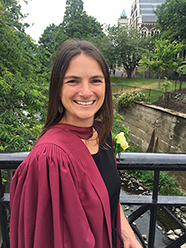 “Postgraduate study has enriched my working life. Obviously, I have a much deeper understanding of my field, which brings more satisfaction, but I also have the skills to critically evaluate others' research and draw my own conclusions.
“Postgraduate study has enriched my working life. Obviously, I have a much deeper understanding of my field, which brings more satisfaction, but I also have the skills to critically evaluate others' research and draw my own conclusions.
“At the moment I work as a clinician, but I know in the future if I wanted to branch out into other non-clinical aspects of dentistry, my postgraduate training will provide more opportunities.”
Read more about Dr Scott's DClinDent experience
Staff expertise
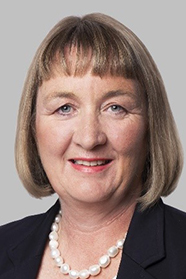 Associate Professor Lara Friedlander
Associate Professor Lara Friedlander
MDS PhD(Otago) FRACDS FICD FPFA
Associate Professor Lara Friedlander is Head of the Discipline of Endodontics and a specialist endodontist with research in the areas of pulp development and disease, practice-based research, dental education and immunopathology. She is Associate Dean Undergraduate for the Faculty of Dentistry and is passionate about teaching and supporting students to success. Since 2008, Associate Professor Friedlander has supervised a large number of postgraduate students in clinical and research activities. She has well developed research themes in pulp biology, regeneration, angiogenesis; and diabetes and is a member of a global translational pulp biology advisory board. Associate Professor Friedlander is also an active researcher in endodontic education, curriculum design and development and is a member of endodontic educators groups globally and leads Australasian research. Her work has been widely published and presented at international conferences. She has led and supervised numerous postgraduate and PhD students in research and has been an invited speaker and examiner of many international articles and theses. Associate Professor Friedlander is active within the profession and enjoys working with dentists in the community to enhance their endodontic knowledge and skills. She has received multiple awards for her service and commitment to the profession.
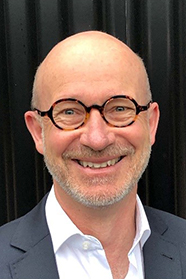 Associate Professor Peter Cathro
Associate Professor Peter Cathro
MDS PGCertTertT(Otago) PhD(Adelaide)
Upon completion of his specialist training in Endodontics (1994), Peter worked as an endodontist in full time private practice in Melbourne and then in Auckland. Peter later took a position as a Senior Lecturer at Otago University before becoming Head of Discipline at the University of Adelaide for seven years. Peter has returned to Otago University and is Head of the Department of Oral Rehabilitation.
In addition to teaching undergraduate and post-graduate students, Peter has lectured extensively at international conferences and given numerous endodontic hands-on courses throughout Australia, New Zealand and Asia. Peter completed his PhD in microbiology and his current research interests are in microbial adaptation and endodontic applications of hydroxyapatite. Peter is a reviewer for five peer-reviewed journals.
Mrs Catharina Hauman
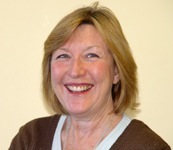 BChD MMedSci(Pret) MDS(Otago)
BChD MMedSci(Pret) MDS(Otago)
Catharina (Tina) has been a part-time senior lecturer in the Department of Oral Rehabilitation since she qualified MDS(Endo) from Otago in 2002. She has a background in microbiology and has published several research and clinical review papers on microbiology and endodontic topics. She has been practising part-time as an endodontic specialist in Christchurch and Dunedin for the past 17 years. Her clinical experience, expertise, and practice management skills make her a valuable team member of the doctoral training programme.
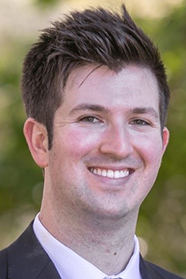 Dr Finn Gilroy
Dr Finn Gilroy
BDS DClinDent(Endodontics) (Otago)
Finn Gilroy is a registered specialist endodontist working as a Senior Lecturer at the University of Otago, Faculty of Dentistry. After two years in rural private practice following graduation as a general dental practitioner in 2012, he returned to Dunedin in 2015. Following three years of working in the Faculty in the Urgent Care Unit, he was accepted into postgraduate study in endodontics and completed his Clinical Doctorate in 2020.
His Doctoral Thesis “Perceptions of General Health and Root Canal Treatment in New Zealand General Practice” involved general dentists and patients from around New Zealand and is awaiting publication.
Finn has completed his Fellowship in General Dental Practice with the Royal Australasian College of Dental Surgeons in 2017 and has attained Membership in Endodontic Specialist Practice.
He is passionate about undergraduate teaching in dentistry and is eager to provide excellent service to the Faculty of Dentistry, endodontic discipline, and to patients of our community.
Course content: Year 1
CLDN 910 Research Evaluation and Design
Develop further critical skills in research analysis, develop your definitive research protocol, and have all approvals completed to allow research to begin.
CLDN 910 is designed around basic sciences and research themes.
Outline:
- Critical evaluation of scientific literature and research methodology
- Biostatistics, health research, and epidemiology
- Dental care and research – responsibilities under Te Tiriti o Waitangi
- Research development and health research
- Molecular biology
- General medicine
- Maxillofacial development and function
CLDN 920 Clinical Practice – Research Excellence
CLDN 920 develops critical skills in evaluating research related to clinical practice, and provides opportunity to advance your clinical competencies in endodontics.
Outline:
- Seminars, Case Presentations, Journal Critiques and Clinical Practice and self-directed learning
To progress to Year 2 students must pass both Y1 papers with a grade of 75% or more.
Course content: Years 2 and 3
CLDN 9F Thesis Research, Clinical Research, Clinical Practice
Carry out a supervised research project related to endodontics and present a thesis on your research.
Achieve the appropriate clinical competencies to be able to register as a specialist endodontist in New Zealand.
Outline:
- Clinical research and practice involving patients referred for specialist endodontic care
Further information
Research
Dedicated sessions each week are available for research work and these increase in the third year.
Teaching in undergraduate clinics
Students who hold registration as a General Dentist in New Zealand are able to undertake 1–2 paid undergraduate clinical teaching sessions per week. Overseas-qualified students may have opportunities to teach in the Simulation Clinic. All endodontic postgraduate students are required, as part of the DClinDent (Endodontics) degree, to teach into undergraduate block endodontic simulation teaching modules.
Progress reports
Individual DClinDent progress meetings are held at 6, 18, and 30 months, following which a report is forwarded to the University Doctoral Office. The meeting is facilitated by an independent convenor and held with the student, together with the Head of Discipline and a clinical and research supervisor.
Written examinations
Written examinations will be of three hours' duration and held at the end of each year of the Programme and include an external examiner. They will normally be held in early November of each year. Examinations may be held at other times for students who are incomplete and/or have failed to satisfy the requirements in the end-of-year examinations.
Oral viva voce examinations
An oral viva voce will be held at the end of each year of the programme.
Thesis examination
There will be three examiners: Internal University of Otago, Internal New Zealand, and an External Overseas. Students may be required to have a viva voce as part of the thesis examination.